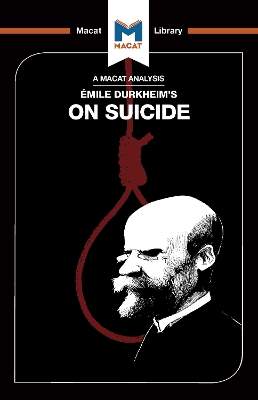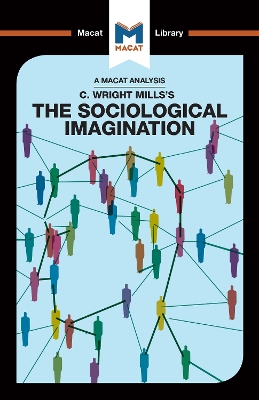The Macat Library
4 total works
Emile Durkheim’s 1897 On Suicide is widely recognized as one of the foundational classic texts of sociology. It is also one that shows the degree to which strong interpretative skills can often provide the bedrock for high-level analysis.
Durkheim's aim was to analyse the nature of suicide in the context of society itself – examining it not just as an individual decision, but one in which different social factors played important roles. In order to do this, it was vital that he both define and classify suicide into subtypes – kinds of suicide with different causal factors at play. From his research, Durkheim identifed four broad types of suicide: egoistic (from a sense of not-belonging), altruistic (from a sense that group goals far outweigh individual well-being), anomic (from lack of moral or social direction), and fatalistic (in response to excessive discipline or oppression). These definitions opened the way for Durkheim to pursue a close social analysis examining how each type related to different social contexts.
While his study is in certain ways dated, it remains classic precisely because it helped define the methodology of sociology itself – in which interpretative skills remain central.
An Analysis of C. Wright Mills's The Sociological Imagination
by Ismael Puga and Robert Easthope
C. Wright Mills's 1959 book The Sociological Imagination is widely regarded as one of the most influential works of post-war sociology.
At its heart, the work is a closely reasoned argument about the nature and aims of sociology, one that sets out a manifesto and roadmap for the field. Its wide acceptance and popular reception is a clear demonstration of the rhetorical power of Wright's strong reasoning skills.
In critical thinking, reasoning involves the creation of an argument that is strong, balanced, and, of course, persuasive. In Mills's case, this core argument makes a case for what he terms the "sociological imagination", a particular quality of mind capable of analyzing how individual lives fit into, and interact with, social structures. Only by adopting such an approach, Mills argues, can sociologists see the private troubles of individuals as the social issues they really are.
Allied to this central argument are supporting arguments for the need for sociology to maintain its independence from corporations and governments, and for social scientists to steer away from 'high theory' and focus on the real difficulties of everyday life. Carefully organized, watertight and persuasive, The Sociological Imagination exemplifies reasoned argument at its best.


